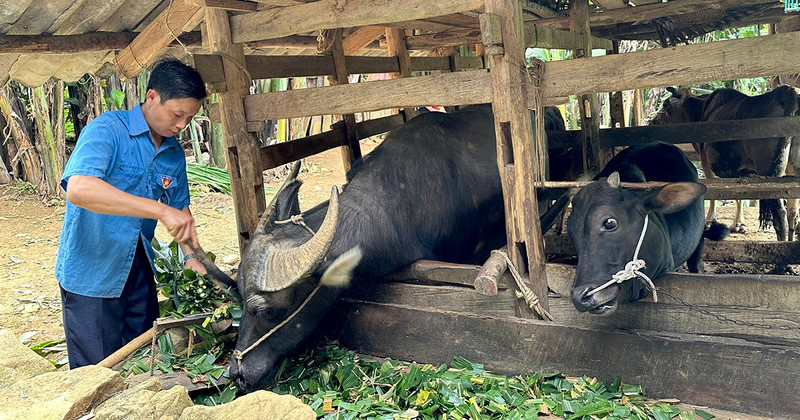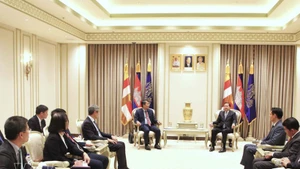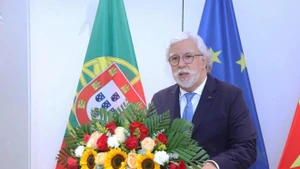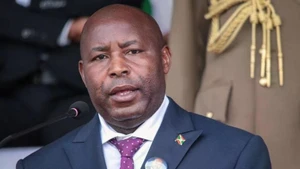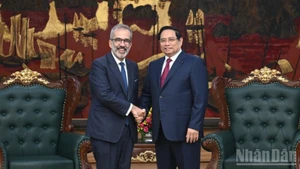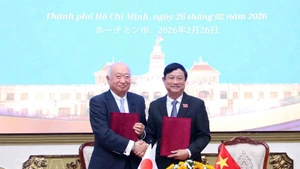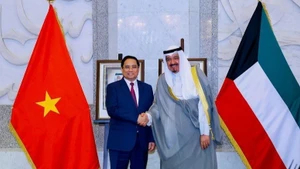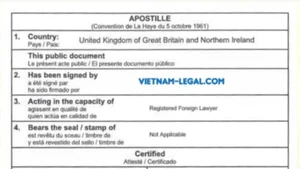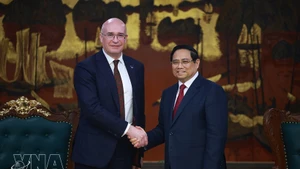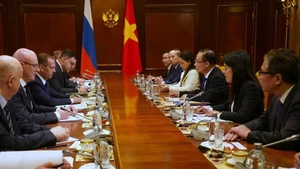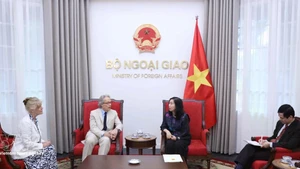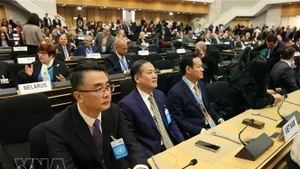Sustainable poverty reduction has consistently been a central policy of the Communist Party and the State of Vietnam throughout the nation’s reform, construction, and development process. This approach ensures human rights and aligns with the United Nations' development goals. The policy has been implemented through various practical measures which are aimed at improving the material and spiritual wellbeing of the people and reducing the wealth gap in society.
Vietnam's achievements in poverty reduction have been described by experts as “nearly unprecedented” and likened to “a revolution”. Despite the negative impacts of the COVID-19 pandemic and the global economic downturn, Vietnam’s sustainable poverty reduction efforts have yielded commendable results during the 2021–2025 period.
Remarkably, in 2023, the estimated multidimensional poverty rate in Vietnam decreased by 1.1% compared to 2022, surpassing the targets set by the 13th Party Congress and Resolution No. 24/2021/QH15 of the National Assembly, which approved the investment policy for the National Target Programme on Sustainable Poverty Reduction for the 2021–2025 period. In many provinces and cities, the living conditions of poor and near-poverty households, particularly in poverty-stricken areas, have significantly improved. Notably, 10 especially disadvantaged communes in coastal and island regions successfully escaped poverty. The quality of life for people across the country continues to improve.
Vietnam is among the first 30 countries worldwide and the first in Asia to adopt the Multidimensional Poverty Index (MPI). According to the Global Multidimensional Poverty Index Report released by the United Nations Development Programme (UNDP) and the Oxford Poverty and Human Development Initiative (OPHI) on July 15, 2023, Vietnam is one of the 25 countries that have successfully halved their MPI over the past 15 years.
Notably, many countries have yet to adopt the Multidimensional Poverty Index (MPI) or fail to provide sufficient data required by its framework. The MPI offers a more comprehensive evaluation of poverty reduction outcomes by considering additional dimensions such as healthcare, education, housing, access to clean water and sanitation, and information access.
This highlights that Vietnam’s poverty reduction policies align well with the global trend toward innovative and sustainable development. As a result, the nation’s achievements in poverty alleviation have been widely acknowledged and praised by the international community. On April 28, 2022, the World Bank (WB) released a report titled "From the Last Mile to the Next Mile: Vietnam Poverty and Equity Assessment 2022", which underscores Vietnam’s progress and its efforts to address poverty and inequality.
The WB noted: "The progress Vietnam has achieved in less than 50 years since the end of the war in 1975 is almost unprecedented." During his visit to Vietnam in 2022, United Nations Secretary-General Antonio Guterres praised Vietnam's achievements as "a clear testament to the resilience and efforts of the Vietnamese people, as well as people-centred development policies."
However, despite these remarkable accomplishments, Vietnam’s poverty reduction efforts still face significant challenges. Risks of poverty relapse and new poverty remain high. Additionally, disparities persist in living standards, access to basic services, market opportunities, and job creation across regions, localities, and population groups, highlighting areas that require further improvement and innovation.
According to a government report, the average poverty relapse rate from 2016 to 2019 was 4.1% annually among households that had previously escaped poverty. In certain regions, especially in areas inhabited by ethnic minorities and mountainous regions, the poverty rate remains high. The "poverty core" is heavily concentrated in the mountainous provinces of the Northwest and Central Highlands, where poverty reduction has been progressing slowly and the risk of relapse remains significant.
For example, in Gia Lai Province, 461 ethnic minority households fell back into poverty between 2019 and 2022, accounting for 85.5% of total poverty relapse cases. In Quang Ngai Province, 579 new impoverished households were recorded in 2023. While social assistance levels have been increased (from 360,000 VND to 500,000 VND, effective from July 2024), they remain insufficient compared to the minimum living standards, underscoring the need for further efforts to address these challenges effectively.
In addition to natural conditions and limited infrastructure, the issue of multidimensional poverty reduction in many localities, especially remote areas and ethnic minority regions, remains highly challenging. Many impoverished households are lacking land or production resources, while some consist of solitary, elderly, or labour-incapable individuals who possess no vocational skills.
Access to basic social services such as healthcare, education, information, housing, clean water, and sanitation, based on multidimensional poverty standards, faces numerous obstacles. For example, in Bac Kan Province, much of the farmland is infertile and lacks adequate irrigation water. Due to an inability to secure irrigation, many rice fields have been converted to cultivating less profitable crops with low yields and limited economic value. Moreover, some poverty reduction policies still follow a "non-reimbursable aid" approach or "free handout" mechanism. This is especially evident in policies providing financial support and direct production inputs, such as breeding stock, fertilisers, pesticides, and farming facilities, which fail to promote self-reliance among beneficiaries.
These support measures have indeed improved the lives of many households, especially those living in poverty. However, they have also fostered a dependency mindset among some segments of the population, failing to mobilise community resources for additional production investment. On the other hand, poverty reduction policies are heavily focused on production (such as funding, land, and agricultural materials) rather than on consumption (such as market access, support for partnerships, and sales), leading to outcomes that are neither truly effective nor sustainable.
Additionally, challenges such as climate change, urbanisation trends, population aging, income and living standard disparities, and labour migration pose significant obstacles to social welfare efforts and poverty alleviation.
Encouragingly, these challenges are being actively addressed by agencies at various levels, with ongoing efforts to find solutions. Nevertheless, hostile and ill-intentioned forces, ignoring Vietnam's remarkable achievements, persist in exploiting existing shortcomings. Employing sophisticated plots and tactics, they aim to undermine the social welfare policies of the Party and State and deny the accomplishments the country has attained.
Recently, there has been a surge in the distortion of humane and rightful policies. For instance, state initiatives to provide rice aid to ethnic minority and mountainous regions in forest protection and care have been twisted into claims that Vietnam is "experiencing food security instability" or "becoming a food-deficient nation".
Similarly, the allocation of annual funding by the National Assembly to ministries, agencies, and localities (widely publicised through mass media) has been falsely portrayed by certain groups as misused, misallocated, or unfairly distributed among ethnic groups. Such propaganda aims to sow discord within the national unity bloc and erode public trust in the Party and State's policies.
On October 8, 2024, the Ministry of Public Security and the Tra Vinh Provincial Party Committee handed over 1,300 houses to poor households, near-poverty households, and families in need of housing support, including policy beneficiary families. However, hostile actors fabricated claims that "all the money came from public donations" and accused the authorities and the Ministry of Public Security of "stealing credit". These allegations blatantly disregard the fact that this project was funded by the Ministry of Public Security's annual mobilisation budget of about 65 billion VND (over 2.5 million USD) and counterpart funding from Tra Vinh Province at 19 billion VND (746,605 USD).
Furthermore, extremist and reactionary elements exploit the difficulties faced by some citizens, such as lack of housing, unemployment, and low income, to malign the “one-party regime in Vietnam”. They claim it fosters social injustice, discriminates against citizens, and neglects vulnerable groups.
These groups incite and call on the public to demand political pluralism, opposition parties, and the “abolition of dictatorship”, asserting that these changes are necessary for basic needs like food, clothing, and justice. Such rhetoric reveals that the intent of these hostile forces is to undermine Vietnam.
In response to the increasing schemes and subversive tactics by hostile forces, particularly on social media platforms, citizens must remain vigilant, discerning, and avoid believing or spreading distorted and false information. They should also refrain from unintentionally aiding these malicious actors. It is crucial to maintain absolute trust in the leadership of the Party and the rightful policies of the Party and State, fostering solidarity and determination to achieve the nation’s development and construction goals.
Simultaneously, authorities at all levels and relevant agencies must continue to work together to improve the material and spiritual well-being of citizens, particularly impoverished and disadvantaged households. In pursuing the Sustainable Development Goals by 2030, Vietnam has committed to the international community to “end all forms of poverty everywhere; create full, productive, and decent employment for everyone; ensure inclusive and equitable quality education; and reduce inequality within society.”
To achieve these goals, the united efforts of the entire political system and the cooperation of citizens are essential. Moreover, the National Target Programme for Sustainable Poverty Reduction, along with poverty alleviation solutions, must be implemented in a more practical and effective manner, utilising innovative approaches.
